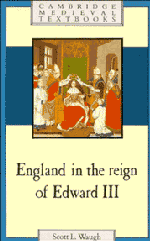Book contents
- Frontmatter
- Contents
- List of figures and tables
- Acknowledgements
- Map 1 Towns and villages mentioned in Chapters 3–6
- Map 2 Ecclesiastical sites mentioned in Chapter 9
- Part I Overview
- Part II Economic challenges
- Part III Government and communities
- 8 Nobility and gentry
- 9 The church and clergy
- 10 Law and order in local communities
- 11 Administration and finance
- Part IV Politics
- Glossary
- Bibliography
- Index
11 - Administration and finance
Published online by Cambridge University Press: 05 June 2012
- Frontmatter
- Contents
- List of figures and tables
- Acknowledgements
- Map 1 Towns and villages mentioned in Chapters 3–6
- Map 2 Ecclesiastical sites mentioned in Chapter 9
- Part I Overview
- Part II Economic challenges
- Part III Government and communities
- 8 Nobility and gentry
- 9 The church and clergy
- 10 Law and order in local communities
- 11 Administration and finance
- Part IV Politics
- Glossary
- Bibliography
- Index
Summary
For the central government, Edward Ill's reign was a period of professionalization and definition rather than innovation. What stood out most was the unusually close rapport between Edward and his ministers. Except for tensions in 1340–1, 1371, and 1376–7, Edward could count on their unqualified support in executing his programmes. This story will be told here through the different functions of government: administration, justice, military organization, and finance. If the last two take up a disproportionate share of space, it is because they dominated governmental work in these years of war and conquest.
Edward was fortunate because the government he inherited was small and personal. No office was immune from his intervention, and ministers served at his pleasure. While he pursued the Scots in the 1330s, the chancery, exchequer, and common bench packed up and moved to York to be near him. Nevertheless, most business was conducted routinely, without his personal participation. Government, moreover, was becoming sedentary. The process of implanting offices at Westminster began long before Edward came to the throne, and he carried it further. After the government returned to Westminster in 1338, for example, it never again strayed for long. London and Westminster gradually became a capital. Meetings of parliament contributed to the development. Of twenty-four councils and parliaments summoned in the first decade of the reign, only a third were held at Westminster. Over the next fifty years another fifty-one were summoned, but only three were held outside Westminster or London.
- Type
- Chapter
- Information
- England in the Reign of Edward III , pp. 170 - 190Publisher: Cambridge University PressPrint publication year: 1991
- 1
- Cited by

